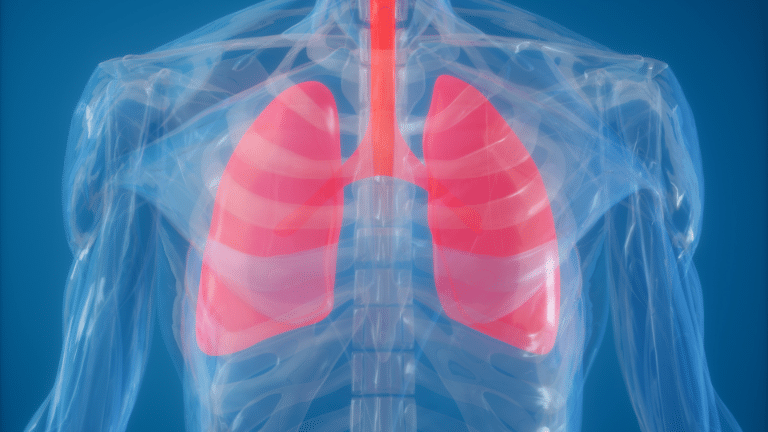
Dr Jemma Mayall from HMRI’s Immune Health Research Program led the study which discovered that a type of immune cell called a Natural Killer cell was abnormally active in people with COPD.

Dr Jemma Mayall from HMRI’s Immune Health Research Program led the study which found that a type of immune cell called a Natural Killer cell was abnormally active in people with COPD.
“There are innate immune cells known as NK killer cells present in lung tissue. They behave differently to adaptive or ‘memory’ immune cells,” said Jemma.
“What we found is that these immune cells in the lungs are abnormally activated in COPD-affected lung tissue.”
These cells, when exposed to viral infections, become overactive quickly and then stop working. The immune response then becomes dysregulated and the killer cells don’t produce the necessary signalling protein (cytokine), and don’t respond appropriately to viral infections.
“This means that while the tissue resident immune cells respond to the infection, they do so too aggressively, and then they fail to produce what’s needed to fight the infection,” said Jemma.
The findings, discovered in collaboration with Grace Cooper from University of Southampton, were published in The American Journal of Respiratory and Critical Care Medicine in a paper titled: ‘Anti-Viral Responses of Tissue-Resident CD49a+ Lung NK Cells Are Dysregulated in COPD’.
Associate Professor Jay Horvat from the Immune Health Research Program at HMRI says more severe viral infections and infection-induced exacerbations are a major cause of morbidity and mortality in people with COPD.
“This study used a combination of unique models of COPD and tissues from patients with COPD to highlight a new potential mechanism that underpins the increased susceptibility to respiratory viruses seen in people with COPD,” said Associate Professor Horvat.
“They [Jemma and Grace] showed that smoking and COPD is associated with abnormal changes in the function of a special type of cell known as a tissue resident natural killer cell. The changes they observed in these cells likely plays a crucial role in the inappropriate response to virus infection in smokers and people with COPD.”
This research will be used to explore therapies designed to correct the problem identified.
Read the full paper here.
HMRI would like to acknowledge the Traditional Custodians of the land on which we work and live, the Awabakal and Worimi peoples, and pay our respects to Elders past and present. We recognise and respect their cultural heritage and beliefs and their continued connection to their land.

Hunter Medical Research Institute
We’re taking healthy further.
Locked Bag 1000
New Lambton
NSW, Australia, 2305



This site is protected by reCAPTCHA and the Google Privacy Policy and Terms of Service apply.
Copyright © 2024 Hunter Medical Research Institute | ABN: 27 081 436 919
Site by Marlin Communications
